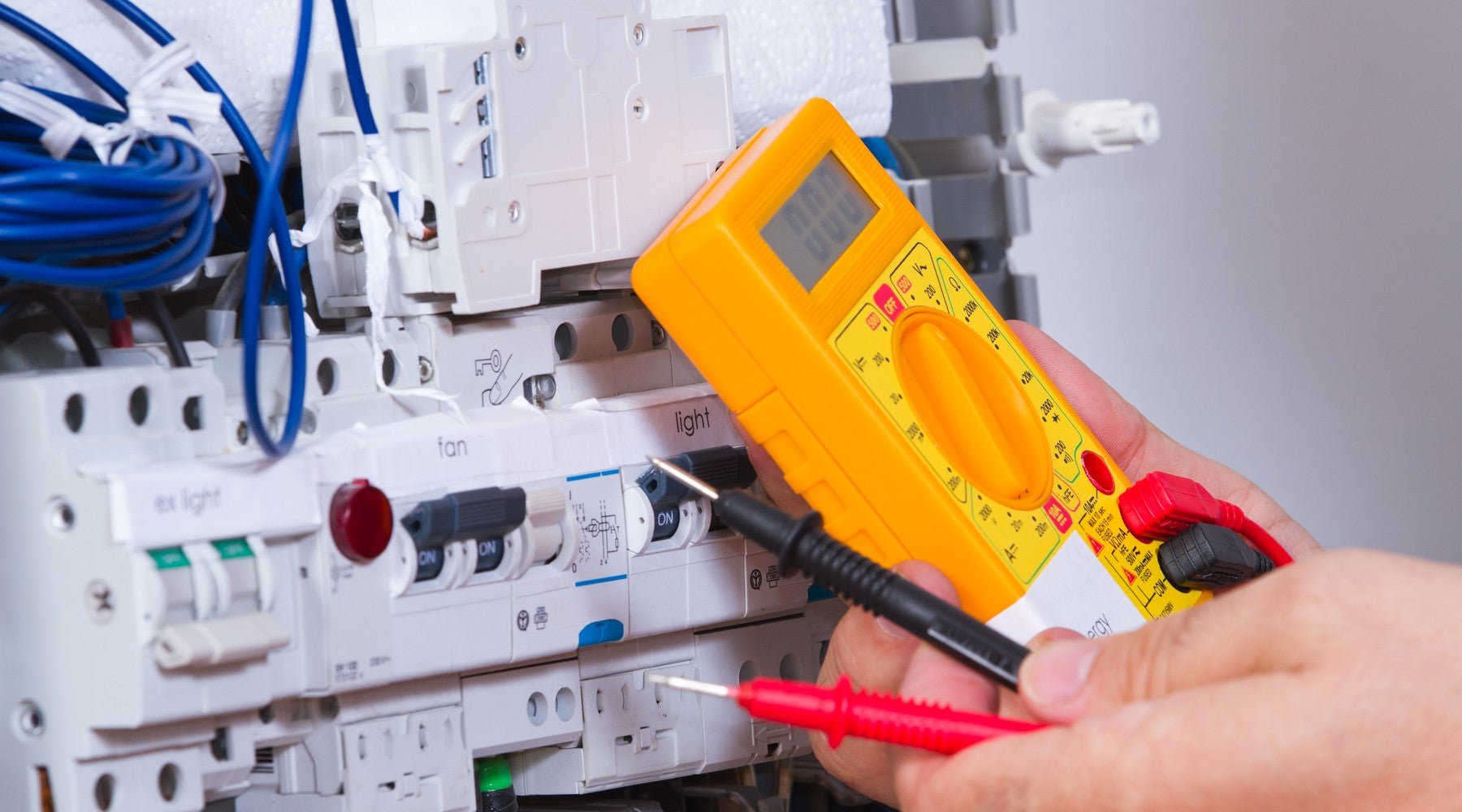Many homeowners ponder, "Do circuit breakers go bad?" The short answer is yes, circuit breakers can fail due to age, overload, or internal faults. Understanding how to identify when a circuit breaker is failing is essential for maintaining the electrical safety and efficiency of your home.
Understanding Circuit Breakers
Circuit breakers are critical components of a home's electrical system. They serve as safety devices designed to protect electrical circuits from damage caused by overloads or short circuits. When a circuit experiences too much electrical flow, the breaker trips, halting the flow to prevent potential hazards.
Signs of a Failing Circuit Breaker
Identifying a faulty circuit breaker is crucial for preventing electrical issues. Key indicators include the breaker not staying in the "reset" position, a noticeable burning smell near the panel, physical damage to the breaker, frequent tripping, or the panel feeling hot to the touch. Additionally, if you hear a buzzing or humming sound coming from the breaker panel, it could signal that the breaker is struggling to maintain the circuit.
Another sign to watch for is the age of your circuit breaker. Older breakers may not trip as efficiently as they once did, leaving your home's electrical system vulnerable to overloads and potential fires. If your electrical panel has not been updated in over 20 years, it's wise to have it assessed by a professional electrician who can determine if your circuit breakers are still in good working condition or if they need to be replaced.
Electrical Overload and Short Circuits
One of the primary functions of a circuit breaker is to protect against electrical overload. An overload occurs when too many devices are operating on a single circuit simultaneously, drawing more electricity than the circuit can safely handle.
Similarly, short circuits, which happen when a hot wire comes into contact with a neutral wire, demand immediate attention. Both scenarios can cause circuit breakers to trip frequently. While tripping is a sign the breaker is doing its job, consistent tripping indicates an underlying problem that needs addressing.
Environmental Factors
Environmental conditions can also affect the performance of circuit breakers. Exposure to high humidity, water leaks, or dust and dirt accumulation can lead to circuit breaker failure.
In particularly damp environments, such as basements or bathrooms, GFCI breakers are crucial as they are designed to prevent shock hazards. However, like standard breakers, they too can fail if not properly maintained or if exposed to extreme conditions for prolonged periods.
Faulty Wiring
Faulty or outdated wiring can also lead to circuit breaker issues. If the wiring system within your home is not up to current standards, it may cause breakers to trip or fail.
Signs of faulty wiring include flickering lights, buzzing sounds from outlets or switches, and a burning smell without a visible source. These symptoms should not be ignored, as they could indicate serious safety issues.
Types of Circuit Breakers
There are several types of circuit breakers, each designed for specific applications. Single-pole and double-pole breakers are common in residential settings, managing 120 volts and 240 volts, respectively. Ground Fault Circuit Interrupter (GFCI) and Arc Fault Circuit Interrupter (AFCI) breakers offer additional protection in areas prone to moisture or fire hazards. GFCI breakers are essential in preventing electric shock in wet areas of the home, such as bathrooms and kitchens, by quickly cutting off power when a ground fault is detected.
AFCI breakers, on the other hand, are designed to prevent electrical fires by detecting and interrupting arcing faults. An arc fault can occur when electrical wiring becomes frayed or damaged, creating a dangerous arc of electricity that can ignite flammable materials. The introduction of AFCI breakers into the electrical code has significantly improved home safety by addressing this common cause of electrical fires.
Troubleshooting Circuit Breaker Problems
When a circuit breaker trips, it's a sign that the system is functioning as intended. However, if a breaker frequently trips or fails to stay reset, it may indicate a deeper issue. Before calling a professional, ensure that the circuit isn't overloaded by unplugging unnecessary devices. If the problem persists, the breaker may be faulty or the circuit may have a more serious issue.
It's also beneficial to identify which devices are connected to the tripping circuit. Sometimes, a single appliance drawing too much power can cause the breaker to trip. By isolating the problem to a specific device, you can more easily address the issue without the need for extensive electrical repairs.
In situations where troubleshooting at home does not resolve the frequent tripping, it might indicate a more complex problem within your home's electrical system, such as a short circuit or a wiring issue. In these cases, it's imperative to contact a professional electrician. Attempting to fix electrical problems without the proper knowledge and tools can be extremely dangerous and may lead to further damage or injury.
Professional Inspection and Replacement
If you suspect a circuit breaker is failing, a professional inspection is recommended. Licensed electricians can diagnose the problem accurately and recommend the best course of action, whether it's replacing the breaker or addressing underlying electrical issues. It will also be wise to purchase them from reputable shops like Sonic Electric.
Preventive Measures
Regular maintenance and inspections can prevent circuit breakers from failing unexpectedly. Ensure that your electrical system is up to date and that all components, including breakers, are in good working condition. Avoid overloading circuits by spreading out high-energy-consuming devices across different circuits.
Proactive Measures for Circuit Breaker Health
To ensure the longevity and reliability of your circuit breakers, consider implementing a few proactive measures. Regularly inspect your electrical panel for signs of wear, corrosion, or damage.
Test your circuit breakers annually to ensure they are functioning correctly—this can be done by using the test button found on GFCI and AFCI breakers. Additionally, avoid overloading circuits by distributing electrical devices and appliances across multiple circuits and consider upgrading your electrical panel if your home has increased its electrical load due to new appliances or renovations.
Ensuring Home Safety: Understanding the Importance of Circuit Breakers
Circuit breakers play a vital role in home safety by preventing electrical overloads and fires. Recognizing the signs of a failing breaker is essential. If you encounter any issues, consult with a professional electrician at Sonic Electric today. Regular checks and understanding the capacity and type of your circuit breakers can help maintain an efficient and safe electrical system in your home.






Share:
How Do Bathroom Exhaust Fans Work?
22 Aesthetic And Practical Outdoor Lighting Ideas For All Seasons